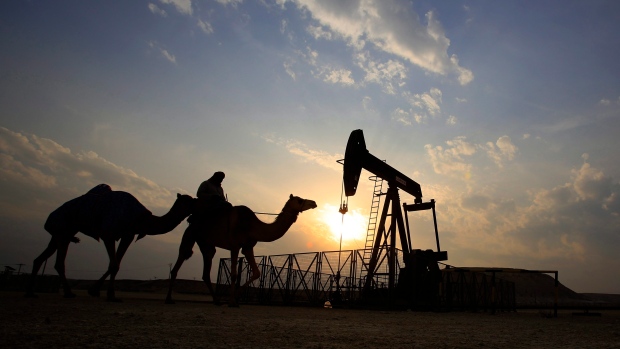Nov 7, 2016
Oil edges higher as U.S. election swings in Clinton's favour, OPEC doubts weigh
, Reuters

Oil prices settled more than one per cent higher on Monday, supported by news that U.S. Democratic presidential candidate Hillary Clinton will not face charges over her emails.
Gains, however, were capped by a rallying dollar on Clinton's improved prospects, making greenback-denominated oil more expensive for holders of other currencies, and by doubts over OPEC's planned production cuts.
U.S. West Texas Intermediate crude settled at US$44.89 per barrel, up 82 cents US, or 1.9 per cent. Brent crude ended 57 cents US, or 1.3 per cent, higher at US$46.15 a barrel.
The Federal Bureau of Investigation said on Sunday it would not press charges against Clinton over her using a private email server. That indicated worse prospects for Republican candidate Donald Trump, whose stance on foreign policy, trade and immigration have unnerved markets.
On the eve of the election, U.S. stocks were set for their biggest one-day percentage gain since March 1, while a volatility measure was set for its biggest drop since late June.
But the price of oil is unlikely to rise further on U.S. politics, said David Thompson, executive vice-president at Powerhouse, an energy-specialized commodities broker in Washington.
"Will there be a larger rally after Clinton is elected? I'm not so sure," he said of the candidate's potential victory, citing not her policies for the rally, but "fear of the unknown" in the case of a Trump win.

WTI futures were also helped by a weekly drop of 442,077 barrels of oil at the delivery hub for crude futures in Cushing, Oklahoma, for the week ended Nov. 4, according to traders citing energy monitoring service Genscape.
Still, analysts polled by Reuters forecast total U.S. crude inventories rose 1.1 million barrels last week after a record build in the previous week.
The Organization of the Petroleum Exporting Countries' Secretary-General Mohammed Barkindo reiterated on Monday the cartel's commitment to a deal to cut output made in Algiers late September.
But many analysts doubt its ability to coordinate a cut sufficient to balance the market.
"Market belief that OPEC can reach a credible deal has collapsed," David Hufton, managing director of PVM Oil Associates, said in a note.
He cited record OPEC production in October, infighting between Iran and Saudi Arabia, as well as calls from Iraq for its own exemption from any cut.


